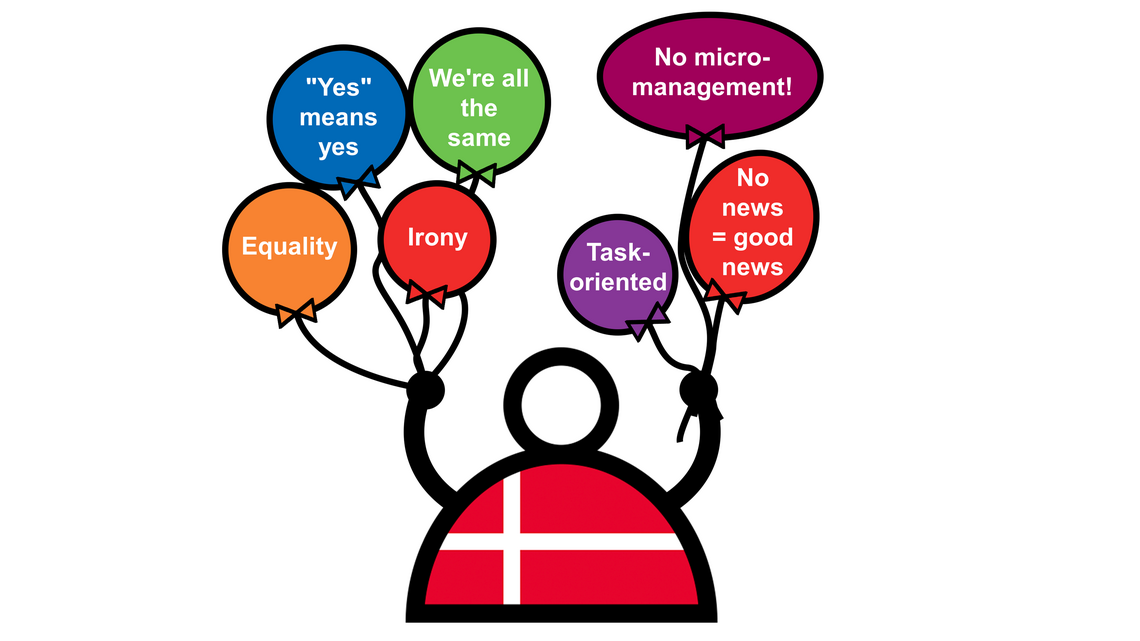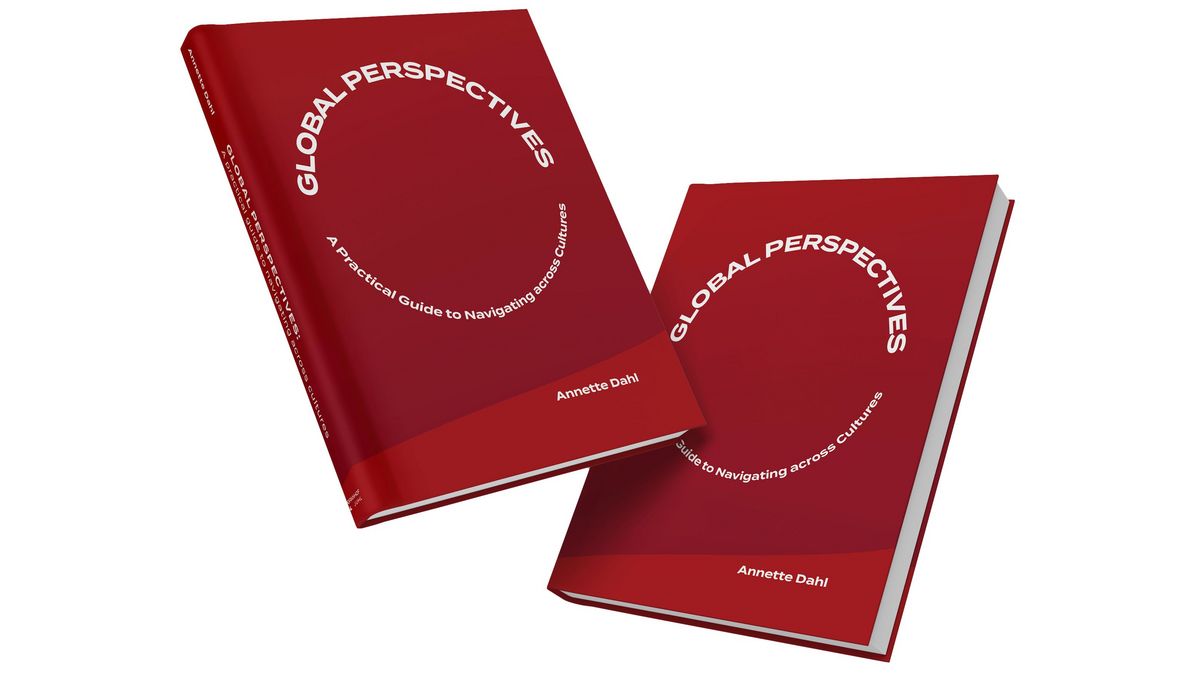
7 Mistakes You as a Dane (Might) Make When Working Globally
Many of the companies we provide intercultural training for at C3 have their headquarters in Denmark and operate globally. And many of the participants in our training programmes are Danes who work with employees, colleagues or partners around the world.
Throughout the 17 years we’ve been conducting intercultural training, we’ve repeatedly encountered the same mistakes made by Danish leaders and employees working globally.
In this blog post, CEO and Chief Trainer at C3, Annette Dahl, shares the 7 most common mistakes.
Do you have a Danish background and work across borders and cultures? Read on to see if you’ve made any of these “classic Danish blunders”!
Do you have an international background, and is working with Danes part of your professional life? Read on to see if you recognize your Danish employees, managers, colleagues or partners in the descriptions in this blog post!
1. You think that “yes” always means yes
“Why did she say yes to meeting the agreed deadline when it was completely unrealistic?”
“Why did he say yes to understanding the process when he did NOT understand it?”
We constantly hear comments like these from Danes who don’t understand why some global employees, colleagues or partners say YES when they actually mean NO!
The typical explanation is that NO is actually being said, but it’s done in a less direct way than most Danes are used to.
If you’re asked if you can meet a specific deadline, a polite way to say NO, where no one loses face, might sound like:
- Yes, we’ll try to meet it ...
- Yes, hopefully it can be done ...
- Yes, yes, we can, but it’ll be a bit challenging ...
A significant part of the “NO message" can also be conveyed through body language, facial expressions and tone of voice.
It can also depend on the situation in which the communication takes place: the context.
That’s why this more indirect way of communicating, widespread in places like East Asia, the Middle East, and South America, is called high-context communication. While the more direct communication style, common in Northern Europe and the USA, is called low-context communication.
Context can involve factors such as:
- Is it a formal setting (e.g., a department meeting) or an informal one (e.g., a coffee break)?
- Are you meeting one-on-one, or is it a larger group of people?
- Who is present, and what are their relationships to each other (how strong are the personal relationships, what’s the hierarchy, etc.)?
As a manager, if you ask a global employee a question, you can use the following rule of thumb:
The more formal the situation, the more people present, and the less you know your employee, the less likely you are to get a direct NO as an answer!
If you’ve been used to low-context communication your whole life, it can be extremely challenging to decode what your high-context communicating global business partners actually mean.
But practice makes perfect! And a good place to start is our blog post here where you get tips on how to listen and read between the lines in your global collaboration.
2. You don’t respect the hierarchy
The Danish preference for equality in all aspects of life is also reflected in Danish work culture.
Even if you're a manager, you should ideally keep both feet on the ground and not indicate that you’re better than the rest of us. The interaction between managers and employees is relaxed and informal. We expect to have an equal dialogue in the workplace, where everyone, regardless of titles or ranks, contributes and challenges each other.
When researchers map the level of hierarchy in work cultures around the world, Denmark comes in at the most egalitarian end of the scale.
By contrast, you’ll find a wide range of Asian and Middle Eastern countries at the opposite end of the scale. But many European countries like Germany, France and Spain also have a much more hierarchical work culture than Denmark.
When Danish egalitarianism meets the rest of the world, it can go wrong in several ways!
Here are some examples of actions that might fit well in most Danish workplaces but may not be well-received elsewhere in the world:
- You, as an employee, email a superior who isn’t your immediate supervisor (POSSIBLE INTERPRETATION: You don't respect your own leader or the leader you’re emailing)
- You, as a manager, email an employee in another team (POSSIBLE INTERPRETATION: You're trying to go behind the back of the employee’s manager and, as a result, put the employee in an uncomfortable position)
- You, as an employee, address your boss by their first name (POSSIBLE INTERPRETATION: A complete lack of respect!)
- You, as a manager, have called a large group of employees in for a meeting and encourage them to provide input (POSSIBLE CONSEQUENCE: You’re met with silence, even though your employees actually have a lot of good ideas)
- You send a technically skilled employee to make a deal with a customer (POSSIBLE CONSEQUENCE: The customer may perceive that your employee is too low in the hierarchy, causing the deal to fall through)
Do you want more insights into how much perspectives on the roles of leaders and employees can vary worldwide? Read our blog post where we explore what your typical behavior would be if you disagree with your boss in three different national work cultures.
3. You assume that no news is good news
If you’re like most Danish managers, you expect that when you assign a task to an employee, they will take it from there. It’s up to the employee to come back to you if they have questions or need feedback. If you don’t hear from your employee, you assume everything is going well. No news is good news.
If you’re like most Danish employees, you’re fine with your manager letting you handle tasks independently. If you don't hear from your manager, you assume they think you're doing a good job. No news is good news.
However, if you take the “no news is good news" principle with you out into the world, it can often go wrong.
Here are some typical interpretations by employees worldwide who have been given a task by their Danish manager – and heard nothing more from them:
- If my manager doesn’t follow up on a task, it can’t be important.
- Why does my manager seem so indifferent and unengaged?
- I really miss getting feedback from my manager – I have no idea how things are going!
- It’s unsafe for me to continue the task by myself – it's better just to leave it...
It’s also a risky strategy to assume that everything is running smoothly if there’s silence from your global employees or partners.
Perhaps you’ve emailed a proposal to your global team on how to solve a task and you asked your team members to speak up if they have any objections.
Since there’s no response from the team, you interpret the silence as an acceptance of your proposal and assume the team is working on the task according to the deadline you’ve set.
In reality, silence could easily mean the opposite. In many work cultures worldwide, silence is a sign that you do not agree.
So, in this case, no news is anything but good news. But you won’t know because you’re not following up. At least not until the deadline, when you’ll be surprised to find out that the task has been completely stagnant since you emailed your proposal ...
Would you like to see how the “no news is good news" principle can be perceived differently depending on the work culture you're accustomed to? Read our blog post here on Danish feedback culture, seen from the inside and outside.
4. You’re not clear enough when delegating responsibilities and tasks
Here's another classic mistake we often see in Danish managers with global employees: You’re not clear enough when delegating responsibilities and tasks.
Let’s say you're the manager of a global team tasked with a new project. You say:
“You four, would you please work on this task together? I'd like you to just try things out. If any questions come up, feel free to reach out to me.”
You imagine that the team members would prefer to figure out who does what themselves. You shouldn't interfere. They have “autonomy with responsibility”, and it’s motivating for them to tackle the task together without micromanagement from you.
However, from the perspective of the global team members, the situation might look entirely different. A typical reaction could be:
“It seems so strange that we have to figure out who does what ourselves. And we need to make quite difficult decisions along the way – that’s the team leader’s responsibility, not ours! We also need a lot of information that hasn't been provided.”
In many work cultures around the world, employees prefer that you, as a manager, set clear guidelines on who does what and how it should be done. They also expect you to make the necessary decisions as they go along, thus fulfilling your responsibility as a manager. See an example of such a work culture here.
5. You get straight to the point
How do you build trust with a new business partner?
In a Danish context, that question barely makes sense because the level of trust in Denmark is so high that, by default, you trust other people, even if you don’t know them personally. This applies to new business partners as well.
In a global context, however, the question makes a lot of sense. Because strong personal relationships are the foundation of trust with a new business partner in many parts of the world.
Let’s take another look at how researchers have mapped out cultural values worldwide.
When examining whether people’s trust in each other is mainly based on personal relationships or on the tasks they collaborate on, Denmark falls at the very task-based end of the scale. Many Danes prefer to get straight to the point and focus on the task they’re working on rather than the people they’re working with.
At the other end of the scale, you’ll find many Latin American, African, Middle Eastern, and Asian countries. Even in several Southern and Central European countries, personal relationships play a significantly larger role than in Denmark. When you’re looking to do business with a potential new partner, you typically start by getting to know each other, sharing meals, talking about personal matters, and showing each other who you are.
Here are some problems that can arise if you, as a task-oriented Dane, don’t take the time to get to know your more relationship-focused global colleagues, employees and partners:
- You may find that contracts and agreements are not upheld (trust in contracts and agreements in relationship-based work cultures largely depends on whether you trust the people you’ve made the contracts/agreements with).
- You’ll miss important information from your employees (in relationship-based work cultures, strong personal relationships make it much safer for your employees to propose ideas and suggestions that they would otherwise keep to themselves).
- There may be friction in the collaboration within your global, virtual team (the fewer face-to-face meetings you have, the more critical it is to establish strong personal relationships and trust with your global team members).
Do you think it’s a waste of time to get to know your global colleagues, employees and partners personally before diving into tasks?
Then remember to compare it to all the time you risk wasting if you don’t!
6. You use irony and “self-irony”
For many Danes, humor is an essential part of life. That also applies to life at the workplace.
We can joke about everything with everyone, including colleagues and managers. And irony is a significant ingredient in Danish humor.
When you're being ironic, you say something different from what you actually mean. If you’re familiar with Danish humor, you can typically decipher if something is said ironically. You pick up on subtle signals in the situation, such as tone of voice and facial expressions, which can tell you if something is said in jest.
Unfortunately, very few of your global colleagues and partners will have a chance to decode these linguistic and cultural codes. So your friendly, ironic comment, as you perceive it, could be taken entirely literally and interpreted as anything but friendly!
An extra warning if you, like plenty of Danes, are fond of “self-irony” – having a sense of humor about yourself.
Among all the unique ingredients that make up Danish humor, “self-irony” is probably the most unique of all! According to humor researcher Lita Lundquist, many languages, including English, don’t even have an equivalent for the Danish word "selv-ironi".
“Self-irony” goes perfectly with the Danish consensus that we shouldn’t take ourselves too seriously, even if we’re managers.
However, a manager using this kind of humor doesn’t sit well with the many work cultures worldwide that are more hierarchical than the Danish one.
Around the world, employees have been left bewildered when their Danish bosses willingly make fun of themselves! How can you take such a manager seriously?
Do you want to know more about what can happen when Danish humor meets the rest of the world? Read our blog post here.
7. You don't familiarize yourself with the societies your global colleagues live in
All workplaces are part of a society. And that society affects how we behave at work.
For example, Danish society is known for its flexicurity model:
It's relatively easy for employers to lay people off. On the other hand, there are relatively secure conditions for you as an employee if you’re laid off. There’s a social safety net that ensures you won’t be left without any income. Although losing your job in Denmark can still lead to stress and uncertainty, it typically doesn't have catastrophic consequences for you or your family's living conditions.
It looks different in many other places in the world. Especially if you’re a single or the primary breadwinner, your work situation can have an extremely significant impact on your family's overall wellbeing.
If you lose your job, your family might be left entirely without income. You can no longer afford a good school for your children or support your elderly parents. Often, your health insurance, along with your job, goes out the window.
When there’s a high risk associated with being laid off, many employees will be less inclined to take risks at work. Perhaps you’ll try to cover up a mistake you’ve made, and you’ll keep your “wild” ideas to yourself.
The above is just one example of how the society you live in affects your actions at work.
There are plenty of other examples. Take, for instance, a country’s education system: Is it competitive, so that you’re taught from a young age to strive for a top position? Or, like the Danish education system, is there more emphasis on helping each other and ensuring everyone flourishes together?
In a busy everyday life, we often overlook the fact that our colleagues worldwide work under entirely different societal frameworks than our own. And that’s a shame. Because it can lead to misunderstandings and the interpretation that our global colleagues' actions are “strange”.
Would you like to know more about the societies your global colleagues live in?
Ask them! But remember to ask your questions in a culturally intelligent way. Get inspiration on how to do that here.
Another good place to start is Gapminder’s “Dollar Street”, where you can meet nearly 500 families from over 60 different countries and gain insight into what their daily lives look like.
Where to go from here
Would you like us to help you avoid these classic mistakes and succeed in your global activities? Read about our cultural awareness and global mindset training, our global leadership training, and our country-specific cultural training – or contact us for a chat.
Would you like more inspiration for your global or cross-cultural work? Follow us on LinkedIn – and subscribe to our newsletter using the form below.

